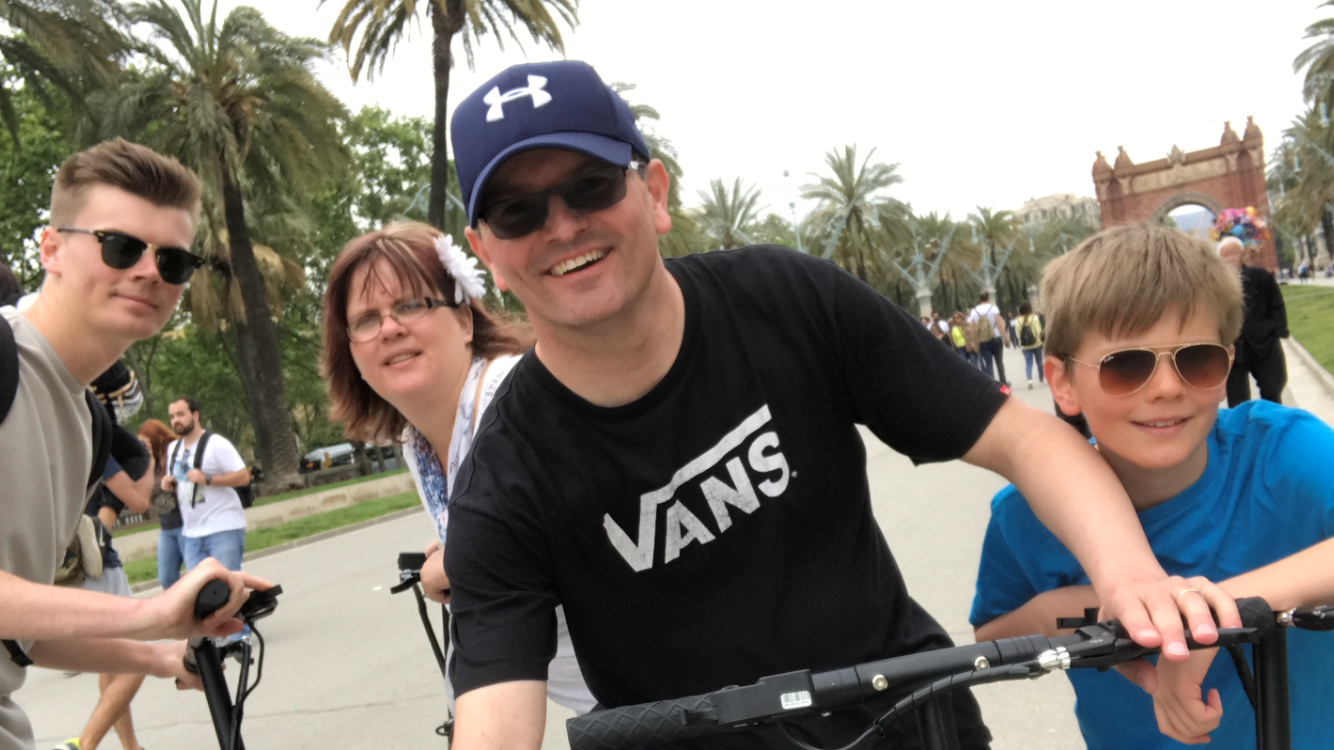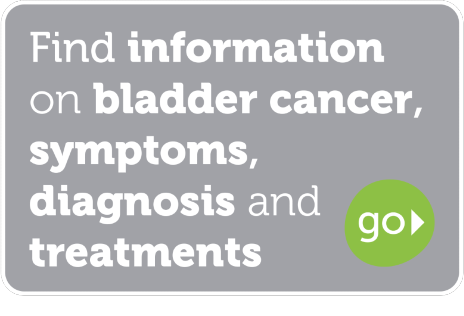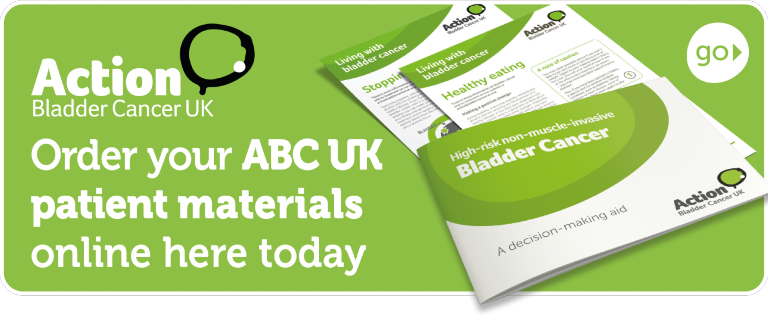Nick's Story
We are very grateful to everyone who has shared their story with us on this website. We know that many people find reading the story of other patients very helpful when trying to make sense of their diagnosis or cancer journey. We also know that these stories can be very powerful in helping to raise awareness of bladder cancer and highlight the urgent need for new treatments, research and support for those with bladder cancer.
If you would like to tell your story please do get in touch with us by email at group@actionbladdercanceruk.org
We can arrange for one of our Patient Support Officers to get in touch to help you tell your story, if that would be helpful, and we also have a 'hints and tips' sheet to give you more ideas about what to write.
A pleasing result!!
Nick's Patient Story

Nick has a history of cancer in his family, so he doesn't smoke and tries to keep reasonably fit and healthy. At the age of 43 he was very busy running his own business and being the normal loving father to his two children. The last thing on his mind was cancer, let alone bladder cancer which he was barely aware of - wasn't that something older men got? But this story has a happy ending and Nick is still running his business and being the even more loving Dad. He was particularly keen that others who might find themselves in a similar situation have hope and remain positive. So, he asked Action Bladder Cancer UK to tell his story for him, which we are delighted to do.
It all started when he noticed blood in his wee back in March 2015. It only happened the once and, while he was alarmed at the time, his busy life meant that this was dismissed and he was called to do something around the house, albeit he felt he should keep an eye on it just in case it happened again. As there was no further sign of it for a few weeks, life just returned to its normal self. Or so he thought. In October, some seven months later, he bled again. Only this time he was working flat out to erect and run an exhibition stand at a conference. Although worried, he soldiered on through the exhibition and it was a few days before he was able to see his GP.
His GP was great and immediately referred Nick to a urologist/haematuria (blood in wee) clinic. His GP explained that blood in the wee was not something you took a chance with. Within seven days he was seen at the hospital and was given a cystoscopy, where a tiny camera is inserted into the bladder so that any tumour can be seen. Although most people find this process, which is done under local anaesthetic, uncomfortable or mildly painful, Nick experienced acute pain and really reacted badly. His consultant was not totally confident that he had been able to have a proper look, so he referred Nick for a CT scan. Although his GP and the hospital had acted quickly, the delays in finding out what was wrong were a very anxious time for Nick. The CT scan results were delayed over the Christmas period which made matters worse. Although after persistent chasing he finally received the results back.
The results confirmed a small growth or polyp which maybe in the bladder and they would like to book him in under general anaesthetic in order to have a further look. Nick of course went ahead with this and rather thought he would be out within a couple of hours. However, when they took him down to theatre it became apparent they were actually all set up and ready to remove a tumour, this was the first Nick had it confirmed there was actually a tumour in there. He went on to have it surgically removed - a Trans Urethral Resection of Bladder Tumour, or TURBT, together with a dose of chemotherapy into the bladder. Immediately after the surgery he was put in a private room and it was explained that this was more than likely bladder cancer, but that it was treatable. It was only at this time that Nick realised that he has cancer. Albeit he had not allowed himself to think that there was anything seriously wrong with him. After all, he felt pretty good and he was too young to get cancer wasn't he? The reality dawned, and the mere sound of the ‘C - word' sent his mind reeling. What did it all mean? What was going to happen to me? How was I meant to tell my wife? And the kids!? What about my business? So many, many questions!
His quest for information led him to ‘Dr Google' who gave him some useful information and also directed him to an online forum which worried him senseless with lots of tales of doom and despond. This was part of his motivation for telling his story to us all as he remained positive and hopeful and believes this is an essential part of defeating cancer and was not wanting to read the doom and gloom stories but the successful stories. After all, why couldn't he be in the successful bracket?
The surgery had left Nick sore, albeit tumour free. He had survived and was on the road to recovery - or so he thought. He was then asked to see his Cancer Nurse Specialist who had more bad news. She was incredibly patient, concerned and helpful. Now the results had come back from the laboratory what she had to tell Nick was very difficult for him to hear. The laboratory had analysed the tumour and found that it had not grown into the bladder lining yet (called Non Muscle Invasive Tumour stage 1 or T1), which was the good news (the more they grow the more they invade the muscle and the harder they are to treat), but that the cells were highly aggressive showing to be Grade 3 or G3. She explained that, unlike most cancers, there is a strong chance that G3 bladder cancer will come back. This is why you enter long term surveillance after being diagnosed. The nurse explained that there were two main treatment options to deal with the risk of the cancer returning and spreading, the first was treatment with an immunotherapy drug called BCG, and the second was to remove the bladder completely, called a Radical Cystectomy. Nick was trying hard to take all this in, when it became clear to him that HE had to decide which treatment he wanted! And he had to decide now, as they needed to act quickly. How on Earth do you decide something like this? The nurse and consultant were very patient in explaining all the pro's and con's of each option. Nick understood that BCG does not work for everyone. Some can't tolerate the side effects, others find it's just not effective for them or their cancer and then need a cystectomy after all. Nick decided that he wanted to hang on to his bladder and would give the BCG treatment a go.
The BCG is instilled directly into the bladder by the nurse. Since the first symptom of blood in his wee two years have now passed and Nick has recently completed 15 courses of BCG over a 12 month period. At first, he said the side effects were very mild, but towards the end he became very sore and still hasn't fully recovered. However, the BCG has worked its magic and his latest 3 monthly cystoscopy check showed he was all clear. These checks will continue now every 3 months for a 3 year period, albeit reducing in frequency to 6 monthly check ups for a further 2 years, despite the pain Nick experiences with cystoscopies, he is reassured to hear that his bladder is free of cancer.
Nick has experienced a mental as well as physical rollercoaster over the past two years. In particular, he wanted to get the message out there to stay positive. Never give up hope and never give in to cancer. Yes, Be aware, Be Wise, Be ahead and Be sure but never give up, stay strong and positive at all times. We are happy to help him spread the word and wish him a long, healthy and happy life! Thank you Nick.
How we help you
Latest News / Events
Setting up a support group for your patients - Webinar for Nurses - Mon 18 Aug 2025 08/07/2025
This is a FREE ABC UK online Zoom session, which is being run in response to requests from urology and cancer nurses, on how to set up and run a successful patient support group. The session will be led by one of the ABC UK Patient Support team, together with two advanced nurse specialists...











